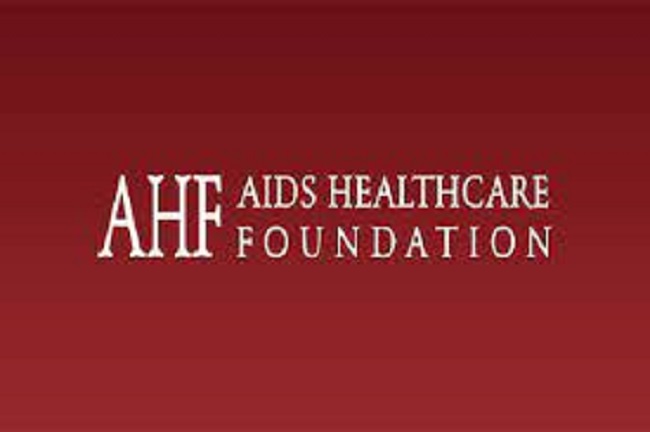The AIDS Healthcare Foundation (AHF) have called on Gilead pharmaceuticals company to sell or license remdesivir for generic distribution at a nonprofit price for the duration of the COVID-19 pandemic.
The AHF at an advocacy meeting in collaboration with 16 Civil Society Organizations(CSOs) in Nigeria also called on Gilead pharmaceuticals to stop evergreening patents on existing HIV/AIDS drugs like Truvada, describing it as an exploitation, not innovation.
Speaking at the advocacy meeting, the AHF Africa Bureau, Director of Advocacy, Policy & Marketing, Kemi Gbadamosi, further called on the Pharmaceutical company to open the license for the generic production of the hepatitis C drug Harvoni to all low- and middle-income countries, without exception.
Gbadamosi said: “We are also calling for license technology to produce treatment for cryptococcal meningitis to generic manufacturers.
“Link executive compensation to the impact on positive public health outcomes and access to medicines in developing countries.
“Gilead must be held accountable for arbitrarily placing a price on who lives and who dies by keeping the most effective, modern, and lifesaving medicines out of reach of millions of people in low- and middle-income countries.”
While speaking further, Gbadamosi also called out Gilead as she described the pharmaceutical company as notorious for exploiting patent monopolies on blockbuster drugs to enrich itself and its shareholders.
“The research and development are often funded by U.S. taxpayers, but for their generosity, the public is rewarded with astronomical drug prices.
“For example, a highly effective hepatitis C drug costs $1,000 per pill, and a 12-week course of treatment has a retail price of over $90,000 in the U.S. A generic version of the same drug costs only $4 per pill in India, but according to Médecins Sans Frontières, Gilead has excluded 50 middle-income countries from access to the generic, discounted price. These excluded countries include Jamaica, Tunisia, the Philippines, Ukraine, and Venezuela, among others.
“More recently, a group of nearly 150 nongovernmental organizations, including AHF and MSF, wrote a letter to Gilead demanding it expand access to its patented COVID-19 treatment candidate drug remdesivir.
“Gilead holds the patent on remdesivir in 70 countries worldwide, and there are no production sites for the drug outside the U.S. In the face of a huge demand for remdesivir, MSF says Gilead is taking advantage of the patent monopoly to limit access to the drug and prevent generic competition. Meanwhile, millions of people with COVID-19 are at risk of dying due to a lack of access to effective treatments.
“Greed and ruthless profiteering are a core part of Gilead’s corporate strategy. Over the past several years, Gilead has been criticized for blocking access to affordable treatment of cryptococcal meningitis – a potentially deadly fungal disease that often affects people living with HIV. Gilead holds a patent on the technology needed to produce the drug; therefore, generic manufacturers cannot produce it at a lower cost.
“Gilead has promised but failed to deliver on a commitment to provide the drug to 116 countries at $16 per vial and has not even registered the drug in these countries, relying instead on local suppliers in countries like India and South Africa, with the price in low- and middle-income countries ranging from $70-$200 per vial.
“For decades, Gilead has exacted a heavy toll upon people living with HIV around the world. By securing successive patents on tenofovir-based formulations for over two decades, Gilead has generated billions of dollars in profit by maintaining a monopoly on some of the most effective and well-tolerated antiretroviral drugs. In 2016, when the estimated cost of Atripla in the developing world was around $100 per patient per year, the U.S. government paid $30,000 per patient per year for the same drug.”
She added that drastic disparity in price of drug was a direct result of Gilead’s greed and monopolistic behavior. “Through some minor modifications, Gilead has been able to extend the patent on Truvada, a component of Atripla, from the original expiry date of 2017 to 2026. This practice is known as patent evergreening, whereby pharmaceutical companies are able to extend drug patents by making small changes to the formulations and re-patenting them as new and improved drugs, despite only making small, incremental changes that do not constitute a major innovation. This keeps affordable and better drugs from reaching low- and middle-income countries around the world.”
The Country Program Director of AHF, Dr Echey Ijezie in his remarks also called for open market to make drug affordable.
Ijezie was of opinion that an open market will encourage a lot of people in the production of drug, thereby making it cheap for low income countries.
He expressed worry that Gilead notoriety for exploiting patent monopolies on blockbuster drugs to enrich itself and its shareholders.
“The research and development are often funded by U.S. taxpayers, but for their generosity, the public is rewarded with astronomical drug prices.”
Meanwhile, the NINERELA Exective Secretary, Amber Erinmwinhe, emphasized on the need to carry other countries along in the production of drugs.
“The current market price of drug is not convenient for most African countries but an open market is the best way to create access of the drug and give room for production,” she added.
READ ALSO FROM NIGERIAN TRIBUNE





